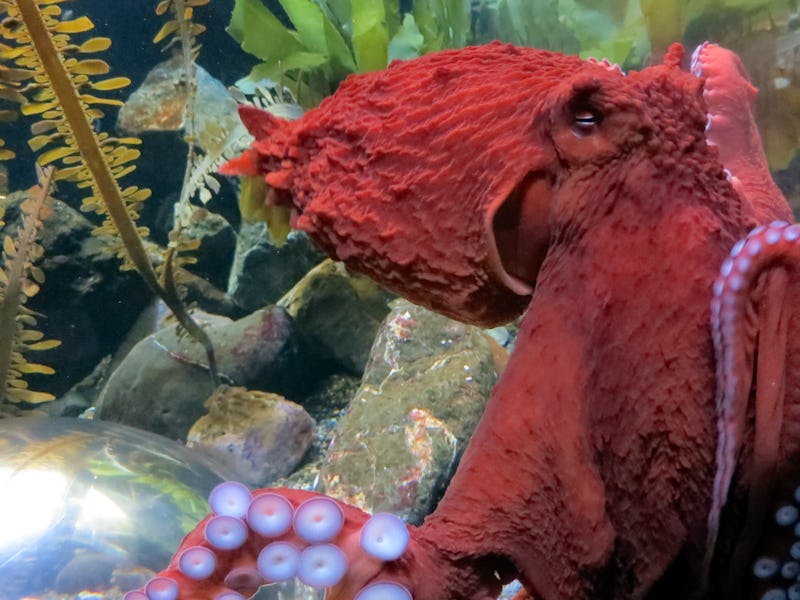How a Colorblind Octopus Sees in Color
It's a matter of perspective.

The human eye is the classic intelligent designer example of a system too perfect and complex to have been produced by natural selection alone. But a new study of octopuses, published online Tuesday in the Proceedings of the National Academy of Sciences, shows how evolution can turn genetic variation into bizarre and extraordinary adaptations. Octopuses and other cephalopods, is turns out, can detect color differences in their surroundings despite only being able to see in black and white. This finding explains how cephalopods manage to camouflage in colorful surroundings despite only having a single photoreceptor channel.
The octopus eye works very differently than the human eye, which let light in through slitted pupils that scatter it like a rainbow. If you’ve ever had your pupils dilated, you may have noticed blurriness and rainbow halos around sources of light; this is the same effect that occurs when light enters the elongated pupils of cephalopods. While their retinas only have one photoreceptor, it can detect the way that light scatters in the eye. The issue becomes about where light hits rather than the nature of the light itself.
“We propose that these creatures might exploit a ubiquitous source of image degradation in animal eyes, turning a bug into a feature,” lead author and Berkeley graduate student Alexander Stubbs said in a news release. “While most organisms evolve ways to minimize this effect, the U-shaped pupils of octopus and their squid and cuttlefish relatives actually maximize this imperfection in their visual system while minimizing other sources of image error, blurring their view of the world but in a color-dependent way and opening the possibility for them to obtain color information.”
The result of this is that octopuses can literally see in color, despite using different machinery to achieve it than we are used to. Their worlds likely appear as vibrant and colorful to their eyes as they do to ours, if not more so — indeed, their visual system seems to privilege color detection over clarity, since the downside of those slitted pupils is blurry vision.
Humans have a tendency to privilege their own perspective when interpreting the world, but this study shows that just because our eyes work for us doesn’t mean that’s the only design that could be used for visual perception. Research elsewhere has shown that octopuses can actually detect light through their skin. The irony of having sight is that it blinds to the sighted different ways of perceiving the world — even humans without eyes have learned to literally see again, using alternative means of perception to activate the brain’s visual system.